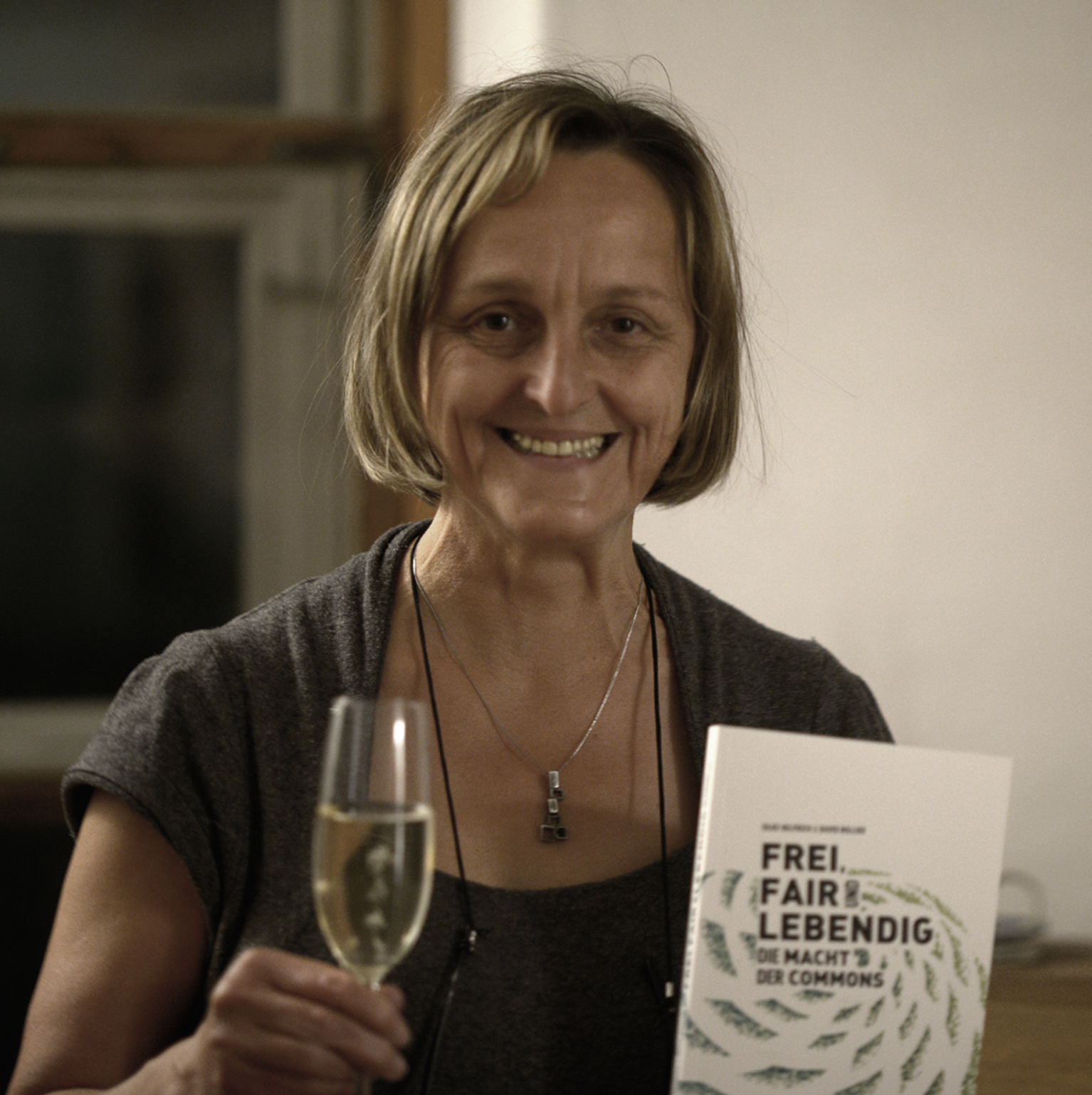This Friday marks a special date for me – the release of the German version of my new book with Silke Helfrich — Frei, Fair und Lebendig: Die Macht der Commons — published by transcript Verlag. The English version — Free, Fair and Alive: The Insurgent Power of the Commons – will be published in September by New Society Publishers.
On April 12, the Heinrich Böll Foundation in Berlin, which sponsored the writing of our book, hosted a public event to launch the book. Silke will be there, of course, and after speaking she will have a conversation with the prominent German sociologist and political scientist Hartmut Rosa; Robert Habeck, the Federal Chairman of Alliance ’90/The Greens; and Elisabeth von Thadden, editor of DIE ZEIT.
There will be a livestream of the event at 19:30 CET. A 96-second trailer about the German edition of the book can be found here.
We have been working on this book for much of the past three years, so I am thrilled by its completion (from which I am still recovering). Let me hoist a transatlantic toast to my dear friend for her brilliant ideas, warm collegiality, and sheer persistence throughout this odyssey.

Silke Helfrich, celebrating the launch of Frei, Fair und Lebendig.
I will offer a longer introduction to the book as the release of the English edition draws closer. For now, let me just say that our book is an ambitious attempt to build on Elinor Ostrom’s work by providing a deeper understanding of the commons as a living social organism. Our new framework – the Triad of Commoning — focuses on the commons in three interrelated aspects – the social, the political (peer governance), and the economic (provisioning). We also look at how one’s view of elemental reality shapes one’s sense of political possibility, and how language plays a critical role in making commoning visible.
This approach emerged after months of working on our book. Silke and I concluded that we just couldn’t convey the realities of commoning if we remained captive to the rational-actor, resource-focused framework used by so many economists. Much of that language points us in the wrong direction by downplaying or ignoring the social, personal, and ecological relationships that live at the heart of a commons.
For example, the word “resource” implies something external and inert that can be bought and sold, or used however one wishes. But to a commoner, shared wealth such as a forest or river is alive. It has emotional and cultural meaning. The word “resource” ignores this whole affective dimension and implies a norm of human dominance. Similarly, to focus on the individual as the primary agent of action – the lone genius or leader – overlooks the collaboration and contextual factors that are essential in a functioning commons.
To deal with such issues, Silke and I set out to develop a “relational theory” of the commons, complete with some new concepts and vocabulary. If we are going to stop destructive acts of enclosure, if we are going to get beyond the misleading conceits of standard economics, we need to get beyond the unexamined premises of market individualism and private property. We need to get beyond the theory of value that market economics relies on and rethink concepts such as “development,” “rationality,” and “scarcity.” We must develop new and richer vocabularies that point to the aspects of commoning that are typically ignored. We invented the terms “care-wealth,” the “Nested-I,” and “OntoShift” to name some neglected shifts of consciousness that commoning entails.
Language is important in building new cultural understandings for how the world might be structured differently, so we realized that we need to rethink some of our received notions of “property.” Instead of seeing property in the traditional way as private dominion over a “resource” and the exclusion of others, the idea of “relationalized property” offers an alternative way of having and using, via a commons. While our book has plenty of new theoretical concepts, we also worked hard to keep our analysis grounded in actual examples. One appendix itemizes more than 70 specific commons that are mentioned in the book.
Silke will soon venture out on a book tour through June with some forty events planned. For those of you in Germany, Austria, or Switzerland (and readers of German), here is Silke’s speaking schedule in the coming months.






